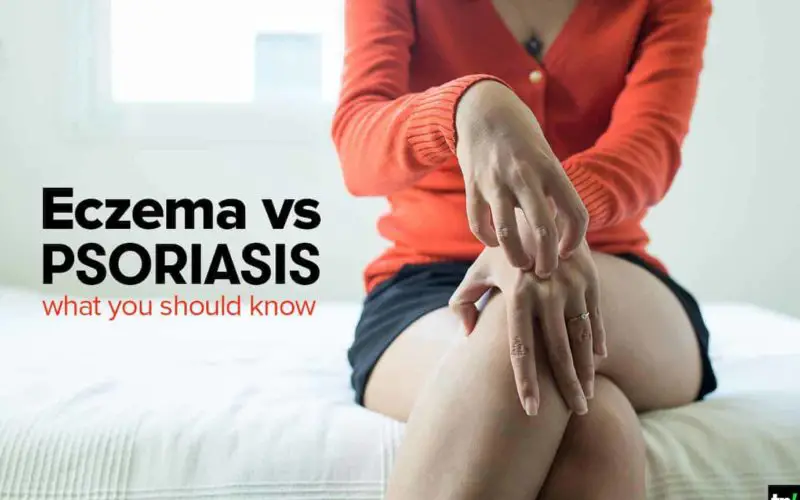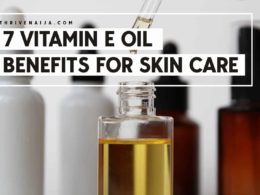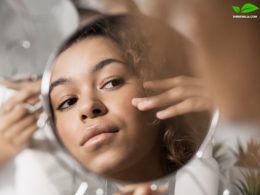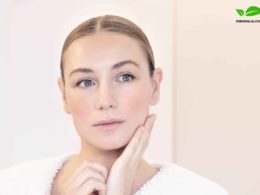Are you having some dry, red, itchy skin that won’t go away? You can’t decide if it’s eczema or psoriasis, It doesn’t even matter what skin condition you have, you don’t have to wait till you’re living with it to want to discover what these two skin infections are as both might have similar symptoms but the skin has different reactions to these two skin conditions also varies.
This is why we’ve created this Eczema vs Psoriasis showdown to break down every shred of information about these two, we also have added links to credible online resources on how to take care of these two.
Eczema and psoriasis are both chronic skin infections but they do have their differences even in symptoms and before using any treatment, it is important to know which one you have, should.
Both skin conditions can be annoying and damaging to skin hence its vital to treat immediately and according to its seriousness, you should also be aware of the difference between the two.
We have carefully analyzed the two conditions and this post provides all you need to know about eczema and psoriasis in order to receive effective treatment that will give you fast relief.
What does psoriasis look like when it starts?

Psoriasis is an autoimmune condition and can move to critical very fast, it causes the rapid buildup of skin cells leading to some scaling on the skin surface. Your skin gets irritated and inflammation around the scale is one of the first symptoms (1).
Psoriasis can also appear as small flat bumps or large thick plaques and the first sign of psoriasis is dry skin that may crack and bleed, pitted thick nails, soreness around patches and painful swollen joint.
Psoriasis can also become very severe if care is not taken on time, some typical types of psoriasis include symptoms like whitish silver scales and it develops in thick red patches.
Can eczema become psoriasis?
It is very easy to mix up eczema and psoriasis but the severity of it might show the difference however a particular form of psoriasis is plaque psoriasis which has symptoms similar to eczema but the treatment might still be different from normal eczema (2).
The most common sign between eczema and psoriasis is your skin becomes dry, likely thicker, red patches will start to show up but these symptoms are not enough to tell the difference with the naked eye.
What Does Eczema Look Like?

There are various types of eczema although their symptoms and signs might look alike, a dermatologist can always test you and tell you what kind of eczema you have, types of eczema include atopic dermatitis, which is a chronic form of eczema that causes itchy and inflamed skin, nummular eczema irritates some selected part of your body like arms, buttocks, back and lower legs that gets extremely dry and itchy (3).
Eczema can be so uncomfortable that it can affect your sleep and daily life activities, there is also eczema called allergic contact eczema which causes a red itchy weepy reaction on the skin, all kinds of eczema first reaction is to irritate the skin, if such is noticed, consult your doctor for a proper test.
Is Eczema Contagious?
There are numerous types of eczema in which the common one is atopic dermatitis and it’s not contagious however the agent causing eczema can be contagious, atopic eczema might irritate the skin causing it to become raw and dry, thereby exposing it to other communicable skin infections.
Eczema makes your skin vulnerable and open to infections which in turn you can spread as a secondary infection from your skin to others (4).
Eczema is not contagious like a cold but it is advisable not to aggravate your skin if you have eczema as not to make it open to infections.
Eczema Vs Psoriasis, Are There Any Similarities?
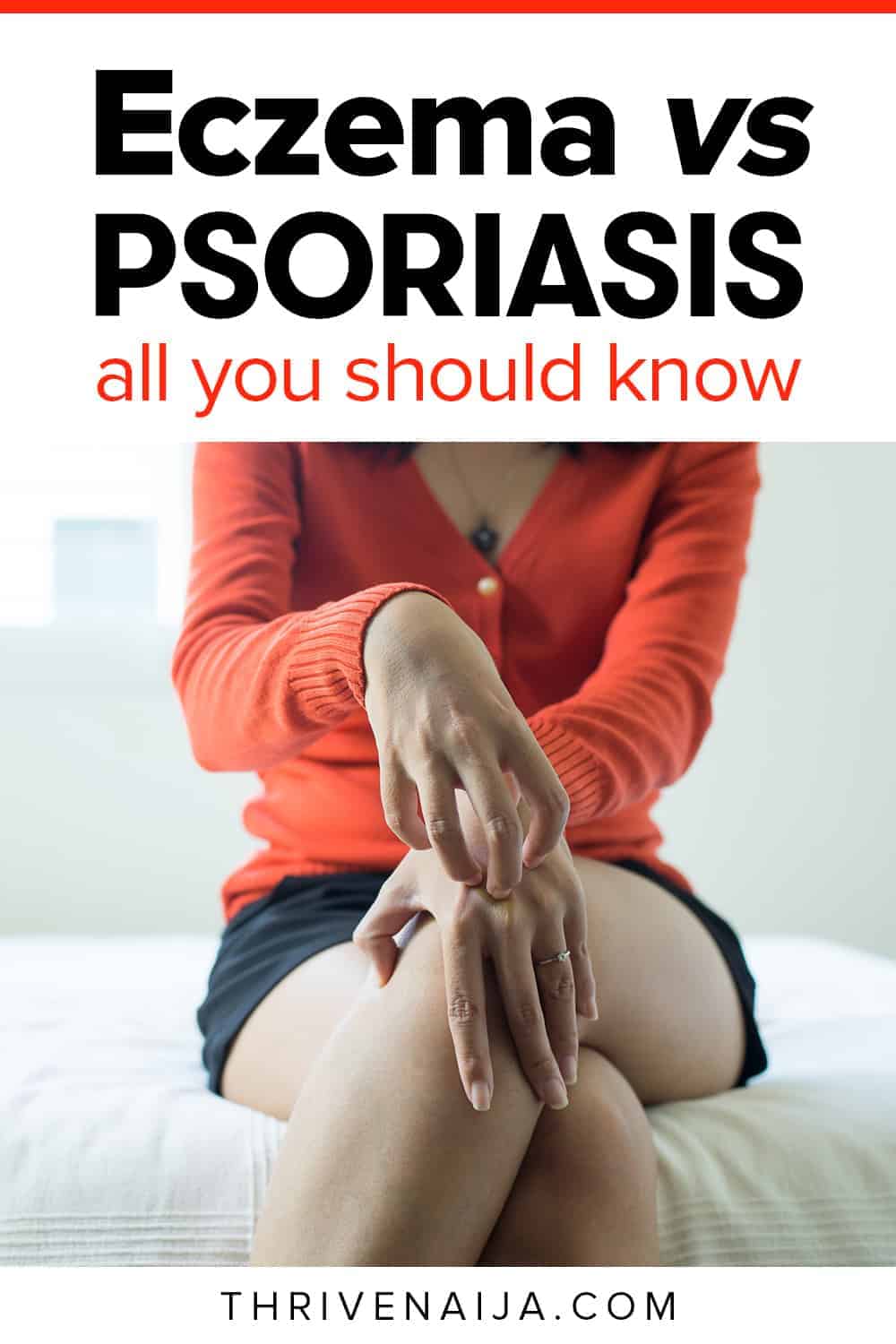
There are lots of similarities between eczema and psoriasis which makes it difficult to decide which it is, however, they each have some signs that explains which you might have. Psoriasis causes thick red scaly patches in defined areas like your knee and elbow while eczema might occur in the crook of your knees and elbows and the itching can be intense (4).
Eczema and psoriasis have symptoms that go hand in hand, but and some of their similarities include itching and dryness but itching for eczema can be more intense, the scratching can be so severe, you can scratch to make your skin bleed.
Eczema vs Psoriasis: Any Difference?
Eczema and psoriasis might have lots of similarities but there are also some notable differences that might help you differentiate which it is, eczema makes your skin red and inflamed, it may be scaly, oozing or crusty, which can be swollen and have severe itching, psoriasis can also cause red patches, they may also be scaly but there may be something extra going on, the affected arear might burn and sting (5).
Getting rid of Eczema and psoriasis
There are ways you can get rid of eczema although there are no fixed ways to completely clear a severe psoriasis constant care can reduce the symptoms and home remedies are also the right go to if you want to clear eczema and psoriasis fast, below are some of the best go-to post that offers remedy to eczema and psoriasis.
- 5 Treatments to Help People with Severe Eczema by Healthline
- 11 Best At-Home Remedies for Treating Eczema by ThriveNaija
- Eczema (Atopic Dermatitis) Treatment by WebMD
- 10 Ways to Treat Psoriasis at Home by Healthline
- 4 Ways to Get Rid of Psoriasis by WikiHow
If you think you have eczema or psoriasis, your best bet is to see the dermatologist immediately to give proper confirmation, both skin conditions can be easily confused for each other, your dermatologist can help identify the issue and what may be contributing to it.
Psoriasis might not have a defined cure but eczema does have a certain age where it all clears up, ensure to stay away from beauty products and makeups that can irritate your skin to avoid further infections. You can also limit activities that might further aggravate your skin.






